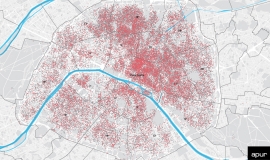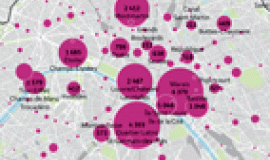Since March 2020, Airbnb, the main platform offering furnished accommodation for tourists in Paris, saw its activity fall. This momentary drop, linked to the health crisis, does not match a similar drop in the number of ads. The crisis seems to have accelerated the dynamic of concentration and professionalisation of the sector, at a time when the effects of regulations coming into force can also being seen.

Since February 2020, the world wide health and economic crisis linked to Covid-19 and the accompanying restrictions have disrupted economic activity. Closely linked to the flow of tourists and business trips, the furnished tourist rental sector has been very affected. This note gives a summary analysis of the impact of the crisis on the activity of the main platform in Paris: Airbnb. This document updates data presented in a more detailed note published in September 2020, that describes the Parisian stock of furnished tourist accommodation available on the Airbnb platform, and gives elements of comparison with seven other major cities (Lyon, Bordeaux, Amsterdam, Barcelona, Berlin, London and New York).
In 2020, more than 200 platforms were offering furnished rented accommodation to tourists in Paris, a phenomenon which has exploded since the mid-2010s. In the context of an already extremely tense property market, the negative consequences linked to the significant growth of these rentals became apparent, such as the rise in property prices and the increasing scarcity of the housing supply. In 2018, a report by the Senate estimated that approximately 20,000 Parisian apartments had been taken off the traditional market to be let on short-term rental platforms. These circumstances explain the regulation of the sector by the public authorities, which imposes, notably, a limit of 120 days rented accommodation per year for one housing unit.









